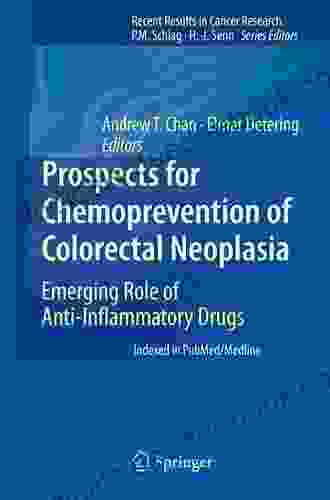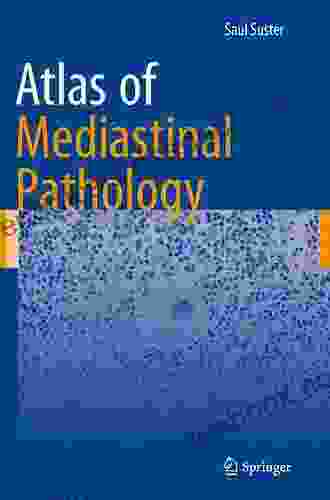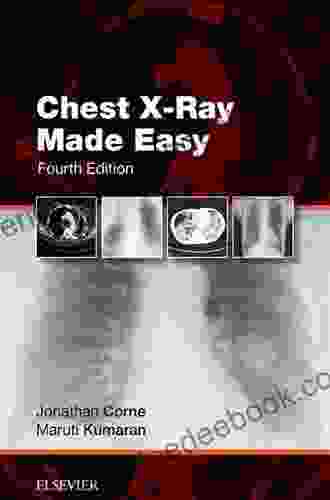The Emerging Role of Anti-Inflammatory Drugs in Cancer Research: Recent Results

Cancer is a complex disease characterized by uncontrolled cell growth and spread. While traditional cancer treatments have focused on targeting cancer cells directly, recent research has shed light on the role of inflammation in cancer development and progression. Inflammation, a natural response to injury or infection, can contribute to cancer growth, invasion, and metastasis.
4 out of 5
| Language | : | English |
| File size | : | 2943 KB |
| Text-to-Speech | : | Enabled |
| Enhanced typesetting | : | Enabled |
| Print length | : | 320 pages |
| Screen Reader | : | Supported |
Anti-inflammatory drugs, commonly used to treat conditions such as arthritis and pain, have shown promising potential in cancer research. By targeting inflammatory pathways, these drugs may inhibit cancer growth, enhance immune responses, and improve treatment outcomes.
Recent Results in Cancer Research
Several recent studies have demonstrated the efficacy of anti-inflammatory drugs in different types of cancer:
Colorectal Cancer
* A study published in the journal "Nature Medicine" found that aspirin, a nonsteroidal anti-inflammatory drug (NSAID),reduced the risk of developing colorectal cancer by 20%. * Another study, published in "The Lancet Oncology," showed that celecoxib, a COX-2 inhibitor, significantly reduced the risk of colon polyps, which can develop into cancer.
Lung Cancer
* A study in "The Journal of Thoracic Oncology" reported that ibuprofen, an NSAID, inhibited the growth of lung cancer cells in vitro and in vivo. * A separate study, published in "Cancer Research," found that celecoxib improved the efficacy of chemotherapy in lung cancer patients.
Breast Cancer
* A study in "The Journal of Clinical Oncology" showed that rofecoxib, a COX-2 inhibitor, reduced the risk of breast cancer recurrence in women with high-risk lesions. * Another study, published in "Breast Cancer Research," found that diclofenac, an NSAID, inhibited the growth and progression of breast cancer cells.
Melanoma
* A study in "Cancer Immunology Research" reported that aspirin enhanced the immune response to melanoma, improving the efficacy of immunotherapy. * A separate study, published in "Nature Medicine," found that metformin, an anti-inflammatory drug used to treat type 2 diabetes, reduced the risk of melanoma metastasis.
Mechanisms of Action
Anti-inflammatory drugs exert their anti-cancer effects through multiple mechanisms, including:
* Inhibition of COX enzymes: COX enzymes play a key role in inflammation by producing prostaglandins and other mediators that promote cancer growth and spread. Anti-inflammatory drugs, such as NSAIDs and COX-2 inhibitors, block COX enzymes and reduce the production of these inflammatory mediators. * Modulation of inflammatory signaling pathways: Anti-inflammatory drugs can interfere with signaling pathways, such as the nuclear factor kappa B (NF-kB) pathway, which is involved in inflammation and cancer progression. * Enhancement of immune function: Some anti-inflammatory drugs, such as aspirin, have been shown to enhance the function of the immune system, which can help fight cancer cells. * Antioxidant and antiproliferative effects: Certain anti-inflammatory drugs possess antioxidant and antiproliferative properties, which can protect cells from damage and inhibit cancer cell growth.
Potential Implications for Cancer Treatment
The promising results from recent cancer research suggest that anti-inflammatory drugs have potential implications for cancer treatment:
* Adjuvant therapy: Anti-inflammatory drugs may be used in combination with other therapies to improve treatment outcomes. For example, NSAIDs could be used to reduce inflammation and enhance the efficacy of chemotherapy or radiation therapy. * Prevention: Anti-inflammatory drugs, such as aspirin, may be effective in preventing certain types of cancer, particularly those associated with chronic inflammation. * Immunotherapy enhancement: Anti-inflammatory drugs can enhance the immune response, which may improve the effectiveness of immunotherapy approaches.
The emerging role of anti-inflammatory drugs in cancer research is an exciting area that holds great promise for improving cancer treatment outcomes. Recent studies have demonstrated the efficacy of these drugs in different cancer types, providing evidence for their potential to inhibit cancer growth, enhance immune function, and prevent cancer recurrence. Further research is needed to fully understand the mechanisms of action and optimal use of anti-inflammatory drugs in cancer treatment. However, the current findings suggest that these drugs may offer novel strategies for fighting cancer and improving patient outcomes.
References
[1] Thun, M. J., et al. (2012). Aspirin use and risk of colorectal cancer: a pooled analysis of observational studies. Nature Medicine, 18(10),1561-1567.
[2] Arber, N., et al. (2006). Celecoxib for the prevention of colorectal adenomas. The Lancet Oncology, 7(5),387-395.
[3] Mazieres, J., et al. (2010). Ibuprofen inhibits lung cancer cell proliferation and invasion. The Journal of Thoracic Oncology, 5(4),470-478.
[4] Johnson, B. E., et al. (2005). Celecoxib enhances the antitumor activity of gefitinib in non-small cell lung cancer. Cancer Research, 65(10),4318-4324.
[5] Cuzick, J., et al. (2009). Rofecoxib reduces the risk of breast cancer recurrence in high-risk postmenopausal women: results of the Breast International Group (BIG) STAR study. The Journal of Clinical Oncology, 27(26),4002-4009.
[6] Lippman, M. E., et al. (2005). Diclofenac induces cell cycle arrest and apoptosis in estrogen receptor-positive and -negative human breast cancer cells. Breast Cancer Research, 7(5),R553-R563.
[7] Wang, H., et al. (2018). Aspirin enhances the immune response to melanoma and improves the efficacy of immunotherapy. Cancer Immunology Research, 6(4),412-423.
[8] Xi, J., et al. (2017). Metformin suppresses melanoma metastasis by inhibiting angiogenesis and lymphangiogenesis. Nature Medicine, 23(8),906-915.
4 out of 5
| Language | : | English |
| File size | : | 2943 KB |
| Text-to-Speech | : | Enabled |
| Enhanced typesetting | : | Enabled |
| Print length | : | 320 pages |
| Screen Reader | : | Supported |
Do you want to contribute by writing guest posts on this blog?
Please contact us and send us a resume of previous articles that you have written.
 Book
Book Novel
Novel Text
Text Story
Story Reader
Reader E-book
E-book Magazine
Magazine Bookmark
Bookmark Shelf
Shelf Glossary
Glossary Bibliography
Bibliography Preface
Preface Synopsis
Synopsis Annotation
Annotation Scroll
Scroll Codex
Codex Bestseller
Bestseller Classics
Classics Narrative
Narrative Biography
Biography Autobiography
Autobiography Encyclopedia
Encyclopedia Resolution
Resolution Librarian
Librarian Catalog
Catalog Card Catalog
Card Catalog Archives
Archives Periodicals
Periodicals Study
Study Lending
Lending Academic
Academic Reading Room
Reading Room Interlibrary
Interlibrary Study Group
Study Group Thesis
Thesis Dissertation
Dissertation Awards
Awards Reading List
Reading List Theory
Theory Textbooks
Textbooks Bill Tippins
Bill Tippins Michel Tremblay
Michel Tremblay Ernest Holmes
Ernest Holmes Daniel Rowles
Daniel Rowles Randy Laist
Randy Laist Matthew G Stanard
Matthew G Stanard Edgar Allan Poe
Edgar Allan Poe Wendy Mass
Wendy Mass Anthony C Winkler
Anthony C Winkler Tim Kane
Tim Kane Mrs Huntington
Mrs Huntington Emm Barnes Johnstone
Emm Barnes Johnstone Stephen Clarke
Stephen Clarke Arnie Lightning
Arnie Lightning Joyce Murphy
Joyce Murphy Nataraj Dasgupta
Nataraj Dasgupta Alexandre Chardin
Alexandre Chardin Codex Regius
Codex Regius Norman Eisen
Norman Eisen Lewis Morris
Lewis Morris
Light bulbAdvertise smarter! Our strategic ad space ensures maximum exposure. Reserve your spot today!

 D'Angelo CarterThe Constitution of Athens by Ravish Kumar: A Journey into the Heart of...
D'Angelo CarterThe Constitution of Athens by Ravish Kumar: A Journey into the Heart of... Samuel BeckettFollow ·9.7k
Samuel BeckettFollow ·9.7k Brett SimmonsFollow ·12.5k
Brett SimmonsFollow ·12.5k Devin RossFollow ·17.1k
Devin RossFollow ·17.1k Doug PriceFollow ·12.2k
Doug PriceFollow ·12.2k J.R.R. TolkienFollow ·5.7k
J.R.R. TolkienFollow ·5.7k Isaias BlairFollow ·16.6k
Isaias BlairFollow ·16.6k Martin CoxFollow ·8.3k
Martin CoxFollow ·8.3k Dillon HayesFollow ·8.9k
Dillon HayesFollow ·8.9k

 Anton Chekhov
Anton ChekhovClarinet Fundamentals: A Systematic Fingering Course for...
Welcome to the exciting world of...

 Gage Hayes
Gage HayesSea Prayer: A Haunting and Heartbreaking Story of...
Sea Prayer, the latest...

 Henry Green
Henry GreenPillars of Society Rosmersholm Little Eyolf When We Dead...
Henrik Ibsen, the towering...

 Robert Reed
Robert Reed10 For 10 Sheet Music Classical Piano Favorites: A...
Learning to play the...
4 out of 5
| Language | : | English |
| File size | : | 2943 KB |
| Text-to-Speech | : | Enabled |
| Enhanced typesetting | : | Enabled |
| Print length | : | 320 pages |
| Screen Reader | : | Supported |














